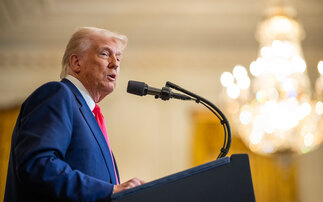There is a rift at the top of government over the UK's green economy – it's about time the Prime Minister pulled rank
There are now so many divisions around the Cabinet table that it is hardly surprising that the rift between the Prime Minister and the Chancellor over the green economy is rarely commented upon. But the...
To continue reading this article...
Join BusinessGreen
In just a few clicks you can start your free BusinessGreen Lite membership for 12 months, providing you access to:
- Three complimentary articles per month covering the latest real-time news, analysis, and opinion from Europe’s leading source of information on the Green economy and business
- Receive important and breaking news stories via our daily news alert
- Our weekly newsletter with the best of the week’s green business news and analysis








